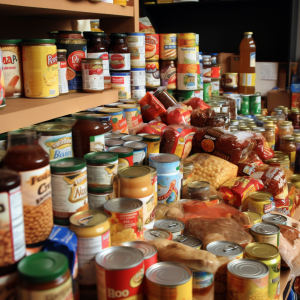Meeting global food needs in the coming years is going to require some ingenuity, marrying a combination of strategic changes and innovations across various aspects of the food system.
As you might have guessed, sustainable agriculture practices are at the forefront of what FarmBox Foods is doing as a company to help move that needle. It’s part of the company’s mission to promote and adopt sustainable farming practices, such as hyperlocal growing, conservation agriculture, and concepts that help minimize environmental impact and enhance long-term soil fertility. FarmBox is well aware that it’s not the entire solution, but we endeavor to play our part to the extent possible.
There are several things happening outside of our purview that we wholly support, among them: embracing precision agriculture technologies including sensors, drones and data analytics. But where we’re strongest is: optimizing resource use, improving crop yields, diversifying available foods, reducing food waste, and lowering the carbon footprint associated with agriculture.
Perhaps the company’s strongest contribution is in helping to shore up the protein needs of communities in need. Conditions are such that raising livestock has become a gamble in some areas of the world, particularly where drought plays a large role. So what can be done? Large-scale mushroom farming in a container is filling those nourishment gaps.
Much work is being done to invest in crucial research and development of climate-resilient crop varieties that can withstand extreme weather conditions, helping ensure stable yields in the face of climate change.
Many nations are also implementing efficient water management practices, including drip irrigation and rainwater harvesting, to conserve water resources and address water scarcity challenges.
Developing and implementing strategies to reduce food loss and waste at every stage of the food supply chain, from production and storage to distribution and consumption, is also a key area of interest for FarmBox Foods, given that our model is meant to empower individual communities with the ability to grow their own food.
Governments worldwide are fostering international collaboration and partnerships to share knowledge, technologies, and resources to address global food challenges collectively. They’re implementing policies that promote sustainable agriculture, support research and innovation, and incentivize environmentally friendly practices. Likewise, more private sector entities are increasing education and awareness regarding sustainable and healthy food choices and promoting consumer understanding of the impact of their dietary habits on both personal health and the environment.
According to the U.N.’s Food and Agriculture Organization, we will need to produce 60 percent more food to feed a world population of roughly 9.3 billion by 2050. It’s an ambitious goal with staggering consequences if we get it wrong. Addressing global food needs requires a holistic, integrated and coordinated approach that considers social, economic and environmental factors. Sustainable and resilient food systems will play a crucial role in ensuring food security for our growing global population. Now is the time for each individual and company to calculate where and how they can contribute.
